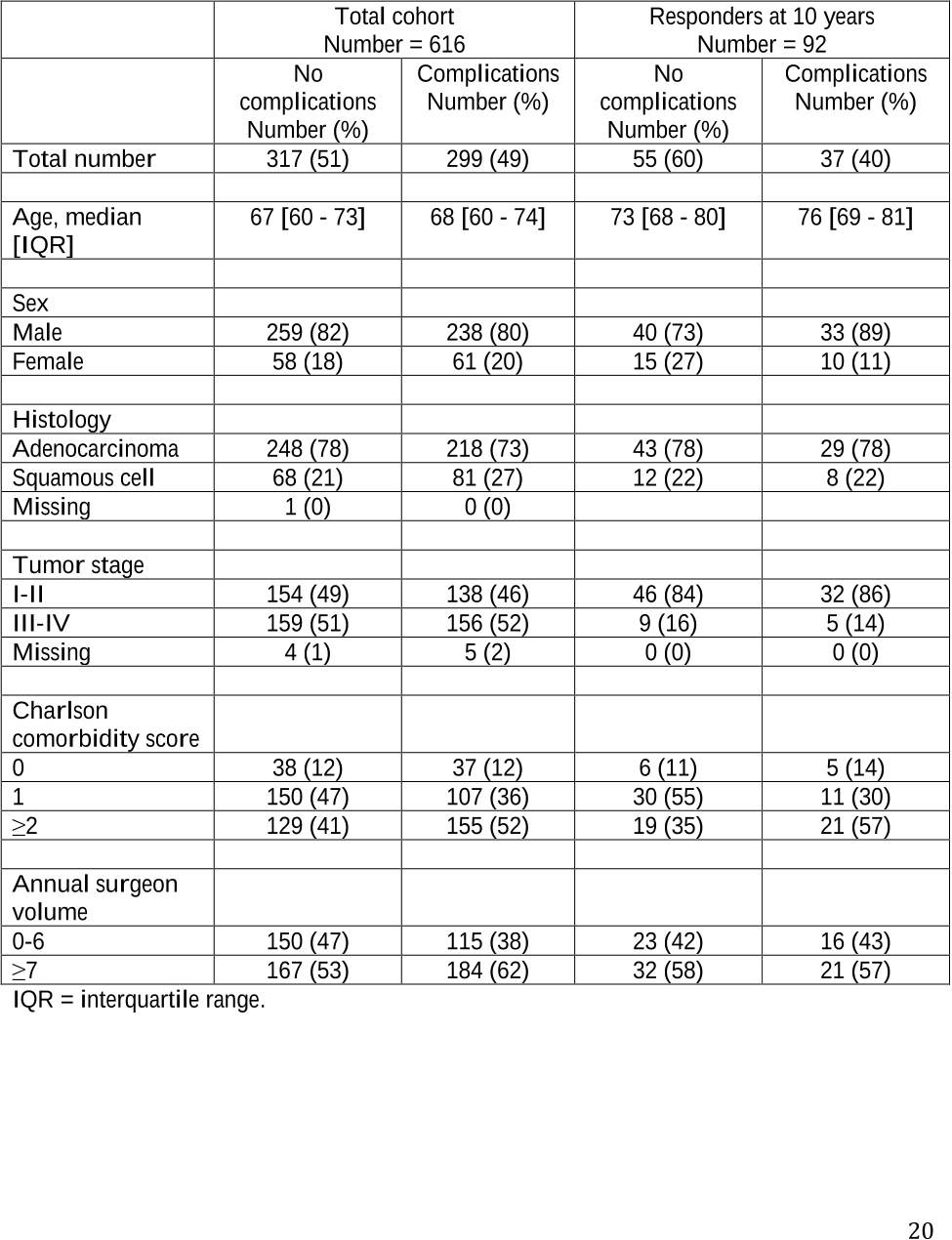













Future research may focus on the effect of specific complications on related HRQOL domains in more detail. Therefore, it is important to assess the association between Clavien-Dindo complication severity grading33 and HRQOL in future studies.
Postoperative complications prolong the hospital stay and may delay the rehabilitation process, which are important for the patients’ recovery in general.
Exposure was the occurrence of predefined postoperative complications, and the outcome was HRQOL evaluated by validated EORTC questionnaires at 6 months, 3, 5 and 10 years after surgery.
Another potential limitation of the study is the change of patients’ perception of HRQOL over time by recalibration of their personal standards, reprioritization of their personal values, and reconceptualization of their quality of life.
Major complications during treatment are known to cause deterioration of HRQOL in the short- but also in the long term.9-12 Moreover, complications and poor postoperative HRQOL are known risk factors for poor prognosis.
Some 616 patients undergoing open esophageal cancer surgery between April 2, 2001 and December 31, 2005 in Sweden were enrolled in this population-based, nationwide and prospective cohort study.
To evaluate the impact of postoperative complications on health-related quality of life (HRQOL) up to 10 years after surgery for esophageal cancer.
In this population-based prospective cohort study of patients undergoing open esophageal cancer surgery, postoperative complications were found to be independently associated with poor HRQOL as late as 10 years after surgery.
12 Furthermore, an Italian study showed that postoperative complications were associated with poor global quality of life at 6-12 months.11
Severity of the complications might also be associated with poor HRQOL outcomes in the long-term due to greater inflammatory response and insult to tissue repair caused by for example single- or multi organ failure.
The long follow-up and the newly acquired comorbidities could potentially negatively affect the HRQOL of the patients and bias the results, but this effect was mitigated by adjustment for comorbidity status at the time of follow-up.
Complications were analyzed in relation to 10-year HRQOL in a prospective nationwide population-based Swedish cohort of 616 patients undergoing open esophageal cancer surgery, HRQOL was impaired after complications on twelve of the 25 scales and items measured at 10-year follow-up, including physical function, fatigue, pain, dyspnea, insomnia and eating problems.
The results of the present study show that patients with complications have poorer HRQOL and suffer from more symptoms than those without complications still as long as 10 years after surgery.
In conclusion, this prospective, population-based cohort study showed that occurrence of postoperative complications is associated with poor HRQOL outcomes up to 10 years after surgery.